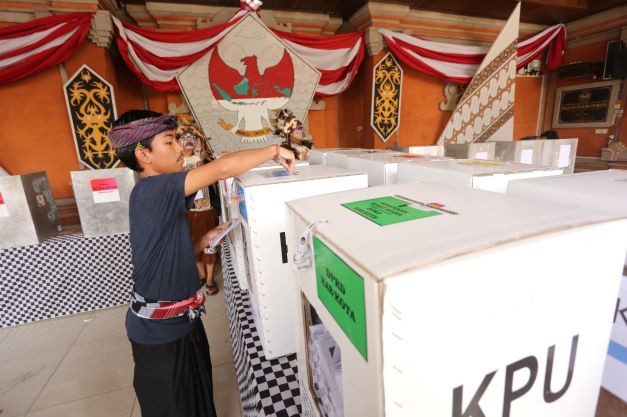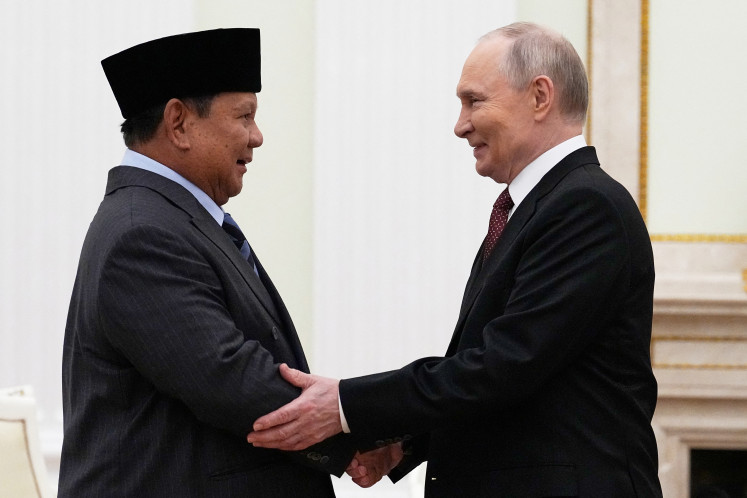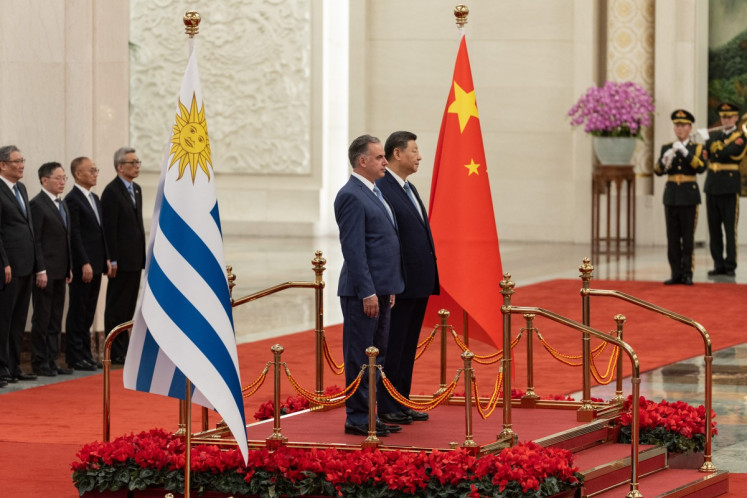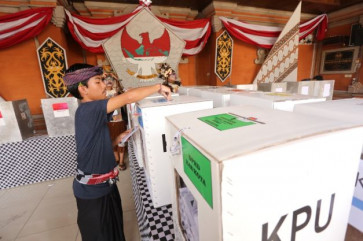Popular Reads
Top Results
Can't find what you're looking for?
View all search resultsPopular Reads
Top Results
Can't find what you're looking for?
View all search resultsSafeguarding the integrity of Indonesia’s electoral system
Indonesia’s political parties have been left with a free hand to raise as much money as they can from whomever they wish, with little fear of sanctions and with no requirement to ever publicly disclose those funds.
Change text size
Gift Premium Articles
to Anyone
T
his week has seen a great deal of attention paid to the integrity of Indonesia’s electoral process, as allegations of intimidation and manipulation have surfaced surrounding the verification of political parties.
Some lawyers representing newly established political parties and employees of regional offices of the General Elections Commission (KPU) have accused the central KPU office of meddling in the process and have threatened to take legal action. The lawyer for the regional officials, Ibnu Syamsu Hidayat, gave the KPU a week to respond to the accusations and stop any attempts to manipulate the results of the “factual verification” process through the intimidation of regional KPU employees. (The Jakarta Post, Dec. 14, 2022).
These allegations are concerning and, if borne out, would do significant damage to the public’s trust in the integrity of the electoral process. These allegations are worth examining more closely in a fully transparent and fair manner but must be conducted with the presumption of innocence until proven guilty.
As part of the examination of these allegations, careful attention must be paid to a number of areas, including whether an abuse of power occurred; whether the alleged manipulation of the process adversely affected voter choice in the upcoming election; why the allegations only surfaced now rather than when they occurred; the potential motivation of the complainants; and whether the allegations ultimately affected the outcome of the verification process – an approach borrowed from investigations into instances electoral fraud, such as efforts to stuff the ballot box or manipulate vote tallies.
The allegations offer us all an important reminder that the integrity of the electoral process requires our collective and constant supervision and should not be taken as a given. At the same time, it is worth understanding that while the current allegations represent a relatively novel area of vulnerability, there are several systemic threats to the integrity of the country’s elections that are well-known and deserve immediate action.
Political party finance is one such area. While laudable efforts have been put forward to increase transparency and accountability regarding the public subsidies political parties receive (banpol) from the state budget, banpol constitute a fractional portion of political parties’ overall operating expenses. The funds political parties raise from private donors remain shielded from the public view, allowing dark money to be channeled via various parties into Indonesia’s electoral system.
While the Political Party Law stipulates clear limits on donations to parties, the law fails to require integrated, holistic, routine disclosures that would provide the public insights into the figures driving Indonesia’s political system. The law also fails to appoint a responsible government agency to enforce the limits stated in the law.



















